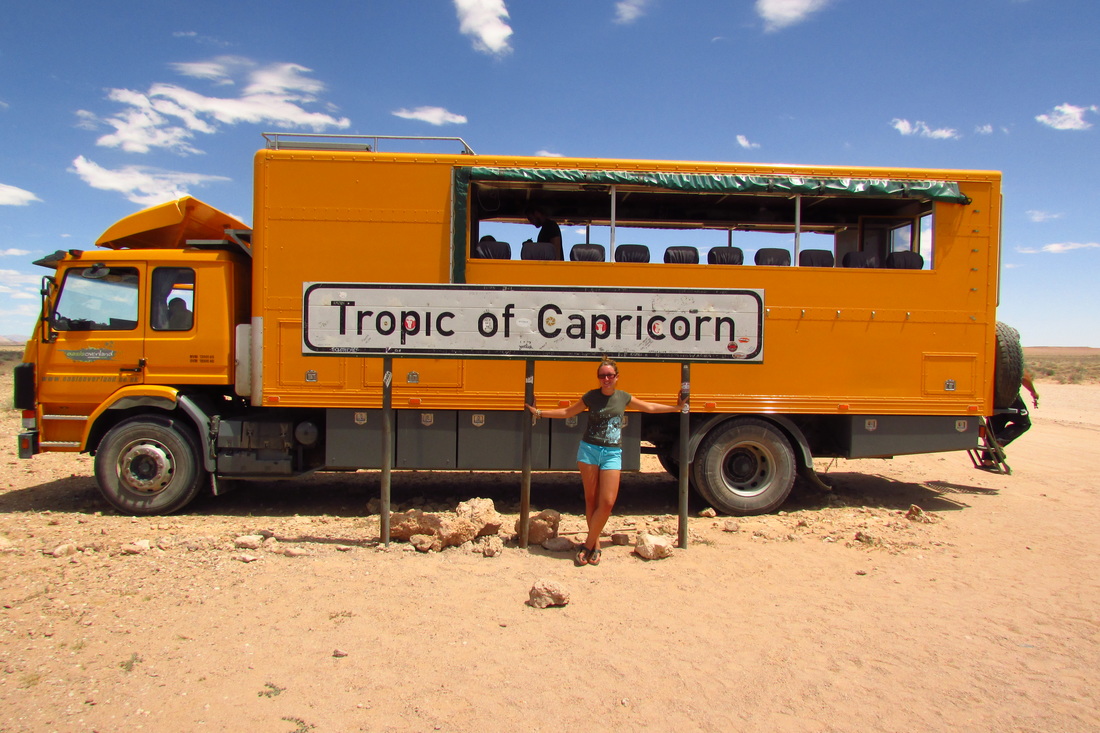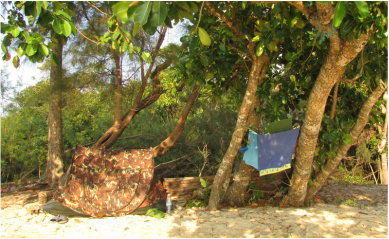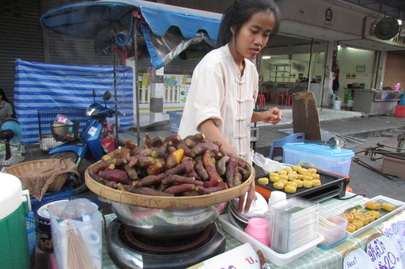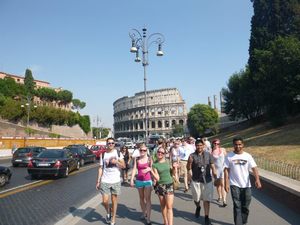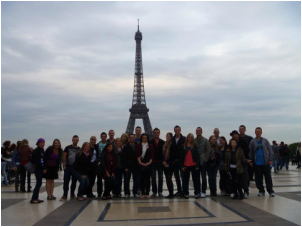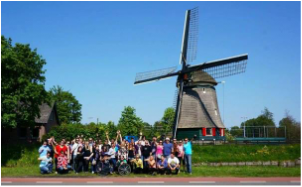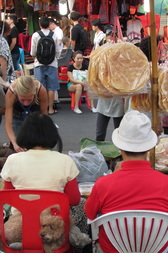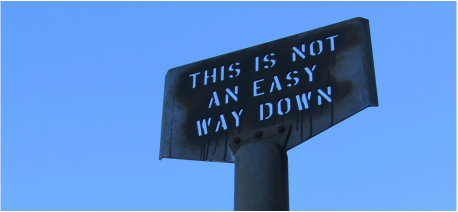How To Travel the World on a Budget
Sometimes it can feel as though travelling around the world will cost you more money and stress than it’s worth.
But plenty of people have done it, and will do it, for much less money than you imagine.
The best way to begin is to decide what kind of traveller you are likely to be.
Do you need to plan every step of the way? Or would you find it less stressful to just ‘wing it’?
Either way, travelling on a budget is easy, exciting and well worth it.
It is not a good idea to use travel agencies, as they add extra fees onto everything. It’s much better to do it yourself!
Check out the tips below to find out how.
But plenty of people have done it, and will do it, for much less money than you imagine.
The best way to begin is to decide what kind of traveller you are likely to be.
Do you need to plan every step of the way? Or would you find it less stressful to just ‘wing it’?
Either way, travelling on a budget is easy, exciting and well worth it.
It is not a good idea to use travel agencies, as they add extra fees onto everything. It’s much better to do it yourself!
Check out the tips below to find out how.
|
Transport Booking a round the world flight is an excellent option. You can take flights into one city or country, and out of another, meaning travel in between those destinations is flexible. Send an email to www.roundtheworldflights.com with your dates and destinations, and they reply with the times and prices. They do all searching and booking for you, all you have to do is pay the money. So easy! If you would prefer to organise it all yourself, it’s a good idea to book early, as flight prices increase. Check flight comparison websites regularly for the best deals, such as www.farecompare.com and www.skyscanner.com. The cheapest flights (and accommodation) are usually found off-season, so it’s a great idea to travel around these times. |
When travelling around Europe or within the UK, there are many budget airlines you can use. Check www.easyjet.com www.ryanair.com and www.flybe.com for cheap flights around Europe. For travel around South East Asia look at www.airasia.com. Always be sure of their terms and conditions, as luggage restrictions can be strict, and some airlines charge if you don’t have a printed boarding pass. The price to pay for cheap flights!
When travelling within a country or region, use local public transport. Trains and buses are often much cheaper and less hassle than taking internal flights. Within Europe and the UK look at using an Interrail Pass www.interrail.eu. (If you are not a European citizen it’s www.eurail.com). Through much of Asia, train travel is easy and cheap. One great way of going ‘around the world’ is booking the Trans Siberian Railway, on which you can go all the way from Russia to China or Mongolia, for less than a plane ticket! http://www.transsiberianexpress.net/
Buses are a very cheap way of travelling around Europe. www.megabus.com and www.nationalexress.com are UK based coach companies that also cover much of Europe. The USA and Canada, Australia and New Zealand have good bus services too, through www.greyhound.com. Wherever your destination, research local transport first, or talk to locals or other travellers in the country.
The same goes for transportation within towns and cities: do as the locals do! Many cities have day passes for buses, trams and metro systems. These can be a lot cheaper than buying single tickets everywhere. Look at renting a bicycle to get around a city, rental is usually inexpensive, and it’s a really fun way to see the sights. If you have a rail pass, sometimes you can get discounts on bike hire.
Of course an even cheaper way of getting around is on foot. Booking accommodation in the centre of town can save you money on transportation. Sometimes it’s tempting to book a super cheap hostel a little out of town, but the time and money you use getting into town may not be worth it!
The cheapest way of all for getting around, is hitch-hiking. If you plan on trying this, be safe! If you are a beginner, Hitchwiki has some great advice for you to get started. http://hitchwiki.org/en/Top_tips
When travelling within a country or region, use local public transport. Trains and buses are often much cheaper and less hassle than taking internal flights. Within Europe and the UK look at using an Interrail Pass www.interrail.eu. (If you are not a European citizen it’s www.eurail.com). Through much of Asia, train travel is easy and cheap. One great way of going ‘around the world’ is booking the Trans Siberian Railway, on which you can go all the way from Russia to China or Mongolia, for less than a plane ticket! http://www.transsiberianexpress.net/
Buses are a very cheap way of travelling around Europe. www.megabus.com and www.nationalexress.com are UK based coach companies that also cover much of Europe. The USA and Canada, Australia and New Zealand have good bus services too, through www.greyhound.com. Wherever your destination, research local transport first, or talk to locals or other travellers in the country.
The same goes for transportation within towns and cities: do as the locals do! Many cities have day passes for buses, trams and metro systems. These can be a lot cheaper than buying single tickets everywhere. Look at renting a bicycle to get around a city, rental is usually inexpensive, and it’s a really fun way to see the sights. If you have a rail pass, sometimes you can get discounts on bike hire.
Of course an even cheaper way of getting around is on foot. Booking accommodation in the centre of town can save you money on transportation. Sometimes it’s tempting to book a super cheap hostel a little out of town, but the time and money you use getting into town may not be worth it!
The cheapest way of all for getting around, is hitch-hiking. If you plan on trying this, be safe! If you are a beginner, Hitchwiki has some great advice for you to get started. http://hitchwiki.org/en/Top_tips
Accommodation
The absolute best way to find accommodation on a budget is to sign up to a website such as www.couchsurfing.org and stay with local people for free. Take it seriously, find someone you have something in common with, and you will have incredible experiences everywhere you go. There is a reference system for guests and hosts, so you know the kind of person you are staying with. The vouching system and verification system is worth looking at, to ensure the people you stay with are who they say they are.
|
Staying with locals can save you money in three (or more!) ways: free accommodation, (usually) a kitchen to cook in, and money-saving tips from someone who knows their city. My advice is not to think of it as a free ride though: always give something to your host in return, whether you cook them a meal, buy them a beer, or give them an English lesson. Couchsurfing also has events and meet-ups, where you can meet locals and other travellers, and share tips with them. www.airbnb.com offers something similar, but you search for rooms within the city, and the host decides how much they will charge you for the room. So you still get the benefits of living in a house, and local people for guidance, but you pay a little for your upkeep.
|
If you prefer hostels or budget hotels, look on www.hostelbookers.com or www.hostelworld.com to find places where like-minded travellers may hang out. Hostel World tends to have more accommodation advertised, but there is a booking free, whereas on Hostel Bookers it’s free to book. Find other travellers and get a room together: a quad room is much cheaper than a single. Or book into a dorm room. If you are youth hostelling a lot, look at getting a YHA card, which gives you discounts on their hostels. https://www.yha.org.uk/membership
If you are planning on staying in one country for a long time, you could work for accommodation and food. A great option is Working On Organic Farms with http://wwoofinternational.org/. You sign up and pay a small fee per country, and then you are emailed a list of potential places to work. You contact the hosts about when you would like to stay, and confirm what you will receive in return. Usually at least accommodation and food is included, sometimes transportation and day trips too. The work usually involves planting, gardening, maintenance and maybe caring for animals. They rarely expect you to have any experience, so go ready to learn new skills, work hard and have some fun.
For work in hostels, farms, English teaching, child care, building work and many other jobs, check www.helpx.net and www.workaway.info. They are free to use, but you must create an excellent profile for yourself, to sell yourself as much as possible. Again, you contact the host of any job you like the look of, and arrange the details through them.
A great way to give something back to your chosen country is to do some volunteering. Many companies charge a lot for you to volunteer, so do your research to find one that is right for you, and that charges a reasonable amount for food and accommodation. www.volunteerhq.org is a great place to start, and one of the cheapest volunteer organisations.
For work in hostels, farms, English teaching, child care, building work and many other jobs, check www.helpx.net and www.workaway.info. They are free to use, but you must create an excellent profile for yourself, to sell yourself as much as possible. Again, you contact the host of any job you like the look of, and arrange the details through them.
A great way to give something back to your chosen country is to do some volunteering. Many companies charge a lot for you to volunteer, so do your research to find one that is right for you, and that charges a reasonable amount for food and accommodation. www.volunteerhq.org is a great place to start, and one of the cheapest volunteer organisations.
Food and Drink
The best way to eat cheaply anywhere in the world is to eat in local restaurants, as tourist restaurants will overcharge. Check if the restaurant has a cover charge, as sometimes they add this extra fee to the bill, on top of the service charge (compulsory tip). In some European cities restaurants will charge more if you sit outside, where there is a better atmosphere. In these cities (mostly in Italy), look for ‘no cover charge’ signs outside the restaurants, so you don’t have to pay extra. Ask locals for advice about tipping, which is normal in most parts of the world. In most countries around 10% is OK. In Australia and New Zealand, there is no tipping culture.
If you avoid restaurants with ‘we speak English’ signs and multi-lingual restaurants, you will experience a much more cultural meal, at a more reasonable price. Ask the waiters for advice or go with the daily special, as that’s usually the cheapest item on the menu.
A great idea is to use local markets or supermarkets and stock up on picnic food. This saves you money, and it means you don’t need to look for a cheap place to eat while you are out sightseeing. Find an interesting spot to people watch, or relax in a park to eat. Supermarket picnics are also good for travel days, because food in airports, bus stations and on trains is usually overpriced.
Find accommodation where you have the use of a kitchen, so you can cook for yourself. You can also meet some great people and share shopping and cooking, saving all of you money. Definitely get your breakfasts in supermarkets. A cheap sandwich and juice is much cheaper than eating in your hostel or in a restaurant.
|
This is good advice if you like to drink alcohol too, as drink in supermarkets or bottle shops is usually a lot cheaper than in bars. Just make sure you check the laws of the country, and the rules of your accommodation, about where you can drink your beverage!
Find places to eat and drink where students like to hang out, and save partying for student nights, as there will often be drinks offers on these nights. Some universities have cheap places to eat, and it’s quite easy to get away with pretending you are a student! |
Adapt to local tastes: noodles in China and kangaroo steak in Australia are the usually the cheapest thing you can buy. Websites and apps such as Tripadvisor, Four Square and Lonely Planet are great for researching places to eat and drink, as they give reviews and give details on prices. But also be aware that any reviews you read are objective: people have very differing opinions and what someone else dislikes, you may love!
|
Sightseeing
Every destination has sightseeing for free. Wandering the town, hiking the hills, lazing on beaches and swimming in the sea are all usually free of charge. Check websites about your destination for tips on free sightseeing, as many places have free museums or other attractions. Visit smaller and less well known places in the countries you visit. These are usually packed with hidden gems, and don’t have the tourist prices attached. Off the beaten track is generally a less expensive route. You will also find locals friendlier, and the places less crowded. For those must-see tourist sites, check if there are any early-bird discounts or sightseeing passes. Some passes include all the main sights plus transportation, saving you money, time and stress. Always get to the busiest sights first, as they can get very crowded later on. Passes sometimes include sight-seeing buses to escort you around the city, giving you a commentary along the way. Look within the major cities and countries for sight-seeing tours. Major tourist attractions offer discounts on group bookings, so often booking a day tour saves you money on entry fees, as well as time and travel costs. Sometimes tour companies offer discounts in restaurants and shops if you book with them. You can find many different tours, getting around by bike, on foot, on a Segway or by coach. You can also book multi-country tours around the world, which completely remove the need to plan your trip. Tours include all transport, accommodation, breakfasts and many other meals. Some sights are included, but most are not. These are very easy to budget for, as you can save beforehand, so you know that all your extra money can be spent on sight-seeing and souvenirs. A great youth company for around the world travel is www.contiki.com, which organises absolutely everything for you, for a very reasonable cost. http://www.oasisoverland.co.uk/ is a budget company, fantastic for getting around those more difficult areas of the world, such as Africa, the Middle East and South America. If you like a bit of an adventure, this is an excellent one. |
Shopping
For souvenir shopping, local shops and local artisans are much better than highly-priced tourist shops. Family run businesses have better customer service, and employ their family members cheaply, meaning their prices are often reduced.
|
If you feel like trying your bartering skills in markets, the general rule is: if it doesn’t have a price displayed on it, the price is negotiable. Decide what you would like to pay for it, and try to barter down to that price. If the seller says a price to you, go immediately to half that, and work up to the price you are happy to pay. Don’t get annoyed if they say no, or you meet someone who has paid a different price to you for the same thing: remember those sellers are only trying to make a living. Be happy if you get a price that you think is reasonable.
If all you are after is a reminder of the places you go, pick one item and ‘collect’ them as you go. Something cheap and cheerful, such as postcards, keyrings or jewellery are great. Small things also save space in your luggage. A great tip is to do all your big souvenir or gift shopping in the cheapest country you are going to, even if it means carrying it all around with you. If it gets too much, you can always pop in to a post office and send it all home, making room for more! |
Practical Tips
Check with your bank before your trip on what it costs to withdraw money at ATMs. This is usually still the cheapest option, so it’s a good idea to withdraw the maximum amount of money you can each time, to save withdrawal fees each time. Use a money belt to keep large amounts of cash safe, and split it, keeping some in your luggage too. Avoid exchange bureaus, as they often charge commission or have bad exchange rates.
For contacting home, use Skype on free Wifi, found in most hostels. If your family back home are not so happy with using technology, purchasing Skype credit and calling a landline or mobile phone is usually cheaper than calling from within a country. You can find International SIMs for your phone, meaning you pay local rates for international calls, which is much cheaper than keeping the SIM from your home country.
Check with your bank before your trip on what it costs to withdraw money at ATMs. This is usually still the cheapest option, so it’s a good idea to withdraw the maximum amount of money you can each time, to save withdrawal fees each time. Use a money belt to keep large amounts of cash safe, and split it, keeping some in your luggage too. Avoid exchange bureaus, as they often charge commission or have bad exchange rates.
For contacting home, use Skype on free Wifi, found in most hostels. If your family back home are not so happy with using technology, purchasing Skype credit and calling a landline or mobile phone is usually cheaper than calling from within a country. You can find International SIMs for your phone, meaning you pay local rates for international calls, which is much cheaper than keeping the SIM from your home country.
|
Follow this advice and you will be on your way to having a great, cheap trip. The best way to travel on a budget is simply to research everything beforehand.
But even if you prefer to ‘wing it’, you will have no trouble living within your means. Travelling on a budget is the most fun way to travel, as you will be mingling with locals, making friends wherever you go, and living like a true traveller. |
